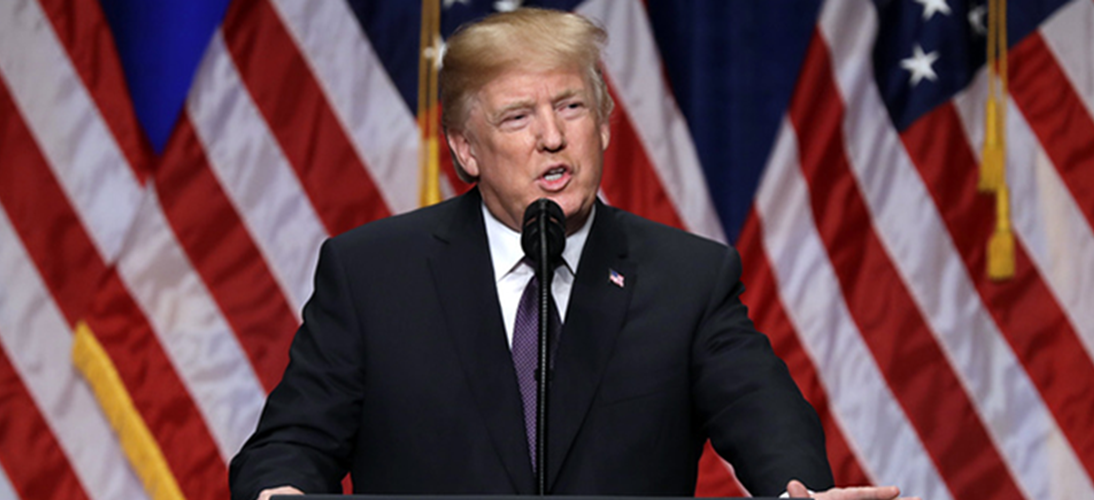
Agribusiness Faces Uncertainty Amid Trump’s Return to the Presidency
Jan, 21, 2025 Posted by Denise VileraWeek 202504
Four years after leaving, Donald Trump returned to office as President of the United States, raising questions about how his administration would impact global trade, particularly in Brazil’s agribusiness sector. Since his victory in November last year, Brazilian agribusiness stakeholders have been closely monitoring the possibility of a renewed trade war between the U.S. and China.
During Trump’s first term, in 2018, he imposed tariffs ranging from 10% to 50% on hundreds of Chinese imports, including agricultural products. Beijing responded with restrictions on U.S. goods, which inadvertently benefited Brazilian agribusiness, particularly the soybean sector, as it captured market share in China due to the higher costs of U.S. soybeans.
Despite the historical context, experts remain cautious about predicting the course of U.S. trade policy in Trump’s second term. “First, we need to see if Trump delivers on the 100 measures he promised for inauguration day. Then, we must analyze those actions. Without concrete details, it’s difficult to assess the direct impact on agribusiness,” said Marcello Brito, professor and technical coordinator at the Dom Cabral Agroenvironmental Foundation.
Mr. Brito does not foresee immediate disruptions in agricultural trade between Brazil and the U.S. In 2024, the U.S. was Brazil’s second-largest importer of farm products, with imports rising 23% year-on-year to $12.1 billion, according to Brazil’s Ministry of Agriculture. Green coffee led the way, with sales surging 67.6% to $765 million.
“It’s unlikely that the U.S. would suddenly impose tariffs on Brazilian coffee or other key imports without having viable alternatives,” Mr. Brito noted. “Any new tariffs would likely target products with minimal impact on U.S. domestic demand.”
The chart below shows the pattern of Brazilian shipments of containerized coffee beans to the US between January 2021 and November 2024. This data was derived from DataLiner.
Coffee Bean Exports to the United States | Jan 2021 – Nov 2024 | TEUs
Source: DataLiner (click here to request a demo)
Mr. Brito also suggested that a new trade war between the U.S. and China might not create the same opportunities for Brazil as in 2018. “Last time, Brazilian agribusiness benefited because of a significant gap in the Chinese market. That scenario is unlikely to repeat. The room for significant export growth doesn’t exist anymore,” he said.
Global market conditions have also shifted since 2018, limiting the potential fallout from aggressive U.S. trade measures. “Trump now operates in a geopolitically different world,” Mr. Brito added. “Geopolitical disturbances, like wars, are already factored into current pricing, and global trade has adjusted accordingly.”
Chris Trant, head of agriculture at U.S.-based consultancy HedgePoint Global Markets, believes Brazil will maintain its dominance in China’s grain supply chain regardless of U.S. policies. In 2023, China imported 105 million tonnes of soybeans, 75% of which came from Brazil.
“Proposed tariffs might create short-term volatility in the grain market, but U.S. farmers are now less dependent on China due to strong domestic demand,” Mr. Trant said. “Meanwhile, China has diversified its suppliers and relies heavily on Brazil. A critical issue will be whether Trump reduces support for biofuel and renewable energy, which could impact demand for crops like corn.”
Tiago Medeiros, Brazil director at U.K.-based trading firm Czarnikow, highlighted the potential for Trump’s energy policies to influence the grain market. “If Trump prioritizes U.S. energy self-sufficiency, we could see increases in oil exploration and domestic ethanol production, especially in California,” he said. Corn, a key feedstock for ethanol production in the U.S., could see shifting demand due to these policies.
While uncertainty looms over the specifics of Trump’s trade and energy policies, experts agree that Brazilian agribusiness must adapt to a rapidly evolving geopolitical and economic landscape.
Source: Valor International
-
Grains
Feb, 16, 2022
0
China may cut soybean demand by 30mt says Xinhua
-
Oil and Gas
Apr, 08, 2019
0
Engie SA buys 90% of TAG pipeline unit from Petrobras
-
Ports and Terminals
Jul, 22, 2022
0
Port of Itajaí privatization postponed; municipal management continues
-
Ores
May, 04, 2021
0
Iron ore to reach US$ 200 per ton in a few weeks, says Citi


